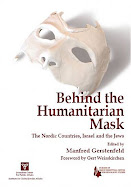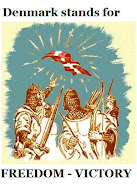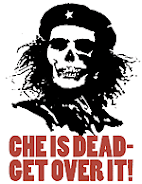 Kosovo, the acceptance of an independent Kosovo and as a EU memberstate is surreal and absurd, terrorism, drug crime, the building up of an islamic mafia - totally ignored by the EU and the medias.
Kosovo, the acceptance of an independent Kosovo and as a EU memberstate is surreal and absurd, terrorism, drug crime, the building up of an islamic mafia - totally ignored by the EU and the medias.
Chronology of the KLA's Terrorism: April 1996 - February 1998 - Click HERE
The Colombia of Europe
The NATO air campaign increased the power of the Kosovo mafia dramatically, in terms of its criminal activities and its control over the population, by eliminating every obstacle, even the vestige of a narcotics police. The bombing campaign also fed the KLA's predisposition to broaden its area of control, starting with Serbia and Macedonia.
One year after the bombing, when many think-tanks made their first thorough analysis, the situation looked appalling. NATO's 78 days of bombings had included the use more than 1,000 aircraft to fly more than 38,000 "sorties" at a cost estimated in the tens of billions dollars. About 40,000 men had been deployed in Kosovo, while reconstruction had not taken place at all. But the KLA, under the NATO umbrella, became the absolute master of Kosovo, and the Kosovo mafia became one of the leading criminal organizations in the world. Another year later, at the beginning of 2001, the KLA was ready to launch its well-organized expansionist assault on two sovereign countries, Macedonia and Yugoslavia, using NATO-administered Kosovo as its base.
Under the cease-fire agreement of June 1999, the KLA was supposed to disarm and disband. The 5,000 KLA guerrillas were to join the unarmed, civil protection Kosovo Protection Corps (KPC) under the leadership of the KLA military commander, Agim Cequ. Cequ is a former general in the Croatian army, reportedly trained by Military Professional Resources, Inc. (MPRI), a U.S. firm based in Alexandria, Virginia. MPRI includes on its board some of the highest-level retired U.S. military officers and is specialized in "privately" arming, training, and "advising" foreign governments and foreign groups, including the KLA[...]
"Kosovo is set to become the cancer center of Europe, as Western Europe will soon discover," stated Marko Nikovic, vice-president of the New York-based International Narcotic Enforcement Officers Association, speaking to the London Guardian March 13, 2000, one year after the NATO bombing campaign had officially installed the KLA in power in Kosovo.
"It is the hardest narcotics ring to crack, because it is all run by families," said Nikovic, who estimated that as of March 2000, the Kosovo mafia was handling between four and a half and five tons of heroin a month, and growing fast, compared with two tons per month before NATO and the KLA took over the province. "It's coming through easier and cheaper, and there is much more of it. The price is going down, and if this goes on, we are predicting a heroin boom in Western Europe, as there was in the early '80s"—i.e., the boom due to the increase in opium production in Afghanistan and Pakistan during the Afghanistan war. Sources in the Balkans have confirmed that the Kosovo mafia bosses, divided into four major families, are concentrating even more on Western European and U.S. markets. A high-level informant admitted, "There is nobody to stop them."
"Kosovo is the Colombia of Europe," Nikovic explained. "When Serb police [during the ruthless retaliation for the KLA assassination of Yugoslav police officers, which led to the NATO intervention] were burning houses in Kosovo, they were finding heroin stuffed in the roof. As far as I know there has not been a single report in the last year of KFOR seizing heroin. You have an entire country without a police force that knows what is going on. Everything is worked out on the basis of the family or clan structure—their diaspora have been in Turkey and Germany since Tito's purges, so the whole route is set up. Now they have found the one country between Asia and Europe that is not a member of Interpol."
Islamic terrorism and the Balkans: The perfect training groundThe emergence of radical – militant Islam during the 90’s is a very complicated issue that involves worldwide actors, social dynamics and a deep knowledge of the religious realm of the Islamic world. This article aims to present and inform for the events that shaped Islamic terrorism in the Balkans. In this corner of Europe, the past 15 years, the roots of Islamic radicalism have deepened and it is of the outermost importance to comprehend this phenomenon, so as to be able to combat it.
The beginning of the Yugoslavian civil strife in 1991 presented an excellent chance for the Mujahedin to get into Europe via the ethno-cultural conflict between Christians and Muslims in Bosnia. These religious mercenaries had proved their aptitude in war from the early 80’s when they fought the Soviet Army in Afghanistan, and managed to inflict great damages to it using Western assistance.
| |||||
The West at that period, along with its regional allies, promoted the creation of the so-called “Green Zone”. That meant the creation of strong Islamic pockets in areas of Soviet influence, or in border countries that deemed important for the strategy of the West against the Soviets. Thus Afghanistan, Pakistan, Caucasus, and in Turkey (through the use of the Turkish “Hezbollah”), became radicalized during the 80’s.
What the West could not comprehend and predict at that period, is the “Genie out of the bottle” effect. Once these radicals groups gained access to armaments and training, they became autonomous and sought to create their own agenda. Therefore the war in Bosnia-Herzegovina was the trial test of their newly founded role.
In mid-1992 some 3000 -3500 Mujahedin were already present in the ranks of the Bosnian Army as volunteer forces. They retained their operational autonomy and in essence became an army within an army. Most of their forces were under the command of General Shakib Mahmouljin and their area of operations was Zenica. Soon the Mujahedin acquired the aura of the elite force within the Bosnian Muslim Army and were accounted for many atrocities against the civilian Christian population. There were instances where the guerillas didn’t hesitate in presenting publicly beheaded corpses with the heads of the victims in baskets, a tactic often used in the Ottoman period as a part of psychological warfare against the enemy.
During the Bosnian war, the Al-Qaeda was beginning to emerge as a world wide Islamic force that intended to strike the West with all means possible. One of the key elements in its success would be to get a hold of “safe havens” in Europe. The situation in Bosnia was the opportunity wanted, and soon logistic bases were established within the Bosnian territory. Moreover a campaign of recruiting Bosnian Muslims to the Al –Qaeda cause, resulted in the creation of “Islamic pockets” in the middle of the Balkans. By the end of 1995 and the subsequent Dayton treaty that ended the war; hundreds of Mujahedin fighters were permanent residents of the established Bosnia-Herzegovina state, and acquired the citizenship of that country.
The USA security agencies have revealed that two of the hijackers in 9/11 attacks, had toured the Balkans and were trained in an Al-Qaeda camp in Bosnia. In addition the explosives used in the 7/7 attacks in London came from the Balkans, an event that portrays the tremendous lack of perspective that the West had when it tolerated the emergence of such networks.
The Albanian nationalism and the Islamic terrorism
As in the case of Bosnia, the Albanian Muslims (70% of the population) proved to be a magnet for the Islamists that sought to regain a foothold in Europe. The conditions by which Albania was freed by the Communist regime in the early 90’s, revealed the existence of a backward isolated country with no interaction with the rest of the world. The transition from a central command structure to that of a free market; ensured the development of multiple societal forces within the much repressed Albanian society.
In early 1994 the infamous Osama Bin Laden, paid a visit to Tirana, presumably to oversight the networking of his activities there. He came back in 1998 with Al-Qaeda training camps in the Northern part of Albania, just across the borders with Kosovo. The trainers –of Arabic origin mostly- were assigned to train the newly recruits of the Usthria Climirtare e Kosoves –U.C.K- units for the forthcoming guerilla warfare against the Yugoslav forces in Kosovo.
The then Albanian Director of the Albanian secret service-SHIK-named Fatos Klosi admitted the training that took place in these camps and the existence of “Jihad warriors” from Sudan, Algeria, Saudi Arabia and Egypt that were responsible for the instruction of the UCK army. To this point it is important to add to the above, the existence of the Albanian Arab Islamic Bank, that was used for the financing of terrorist activities throughout the Balkans. Various sources indicate the existence of Bin Laden’s backing in the bank’s capital, with the sum of 11 million USD.
In 1997, the financial collapse of Albania by an economic scandal that shook the country; had as a result the social unrest throughout the territory and the collapse of the rule of law. An uncounted number of armaments were stolen during the period of the riots from the Albanian’s Army caches, and the bulk of it ended in the hands of the UCK and its Islamist collaborators. Until early 1998 USA characterized UCK as a terrorist organization, due to its connection with well-known figures of the extremist elements of the Islamic world. Nevertheless, the American policy changed its direction since it deemed the existence of Milocevic more threatening at that period than the Islamic movement. During the skirmishes and fights before the NATO bombings in March 1999, the Yugoslav Army managed to inflict great damages to the Mujahedin fighters that were combating along the UCK lines. In Uracevac the bulk of them was eliminated by the Serbian Army and was obliged to retreat back in their safe havens in Northern Albania.
After the end of the 1999 war, the Mujahedin networks regrouped and started to infiltrate the Kosovo area in great numbers. That included the mushrooming of Islamic charitable funds across the region, the construction of Mosques and the radicalization of the local Albanian population.
It is interesting to note that the Albanian population in its majority cannot be conceived as a fundamentalist Islamic nation and the extremists are for the time being a forceful minority of that nation. The Islamic expansion in the Balkans is coupled with the existence of the criminal syndicates that are all prevalent in the Balkan Peninsula. Since the terrorist activities cannot be financed through the use of the legal free market economy, the use of narcotics and trafficking illegal trade has enabled the flourishing of the terrorist networks. The “Hybrid” organizations as the merged terrorist and criminal are named, has created the necessary framework for the Balkans to enter in one of the worst periods of their modern history. The leading criminologist Lorreta Napoleoni has researched articulately the issue and offers illuminating approaches as to the extent of the infiltration of crime & terrorism in world economy.
According to her recent interview for balkanalysis.com, some 1.5 trillion USD are the revenue of the organized crime worldwide. A fair portion of that is being achieved by controlling the “Balkan drugs route” a geographical area that encompasses Kosovo, Northern Albania and Tetovo. More or less the Islamic terrorism network has located some of its bases, along the way of some of the most lucrative criminal areas of Europe. Therefore it is able to increase its revenues and finance its monstrous acts.
In Spring 2001, the Mujahedin forces, once again, were brought to day light by joining the National Liberation Army in its fight in Western FYROM. The NLA was a composition of various Albanian fractions that along with the Islamic extremists sought to prepare the basis for the disintegration of FYROM. There is a large Albanian minority in the country, which also happens to be located right in the centre of the Balkans and where the “Balkan drug route” passes by. The Mujahedin formed the majority of the 113 brigade of NLA, and were accused of many atrocities against innocent civilians of Slavic descent.
On August 2001 the Ohrid accord was signed and the conflict ceased without any real gains by the Albanian side. A month later, the attack on the twin towers revealed to the world the spread and the power the terrorist organizations have amassed, thus the “War on terror” begun and to a great extent dismantled the world wide Islamic terrorist web.
Nowadays in the Balkan area, the existence of terrorist cells and safe havens is a real threat to the stability and coherence of the region and for Europe indirectly. It is more than certain that the local leaderships will soon have to cooperate in order to relieve the much torn-apart Balkans from this 21st menace. One has to remember that it took just 8 years of fighting and preparation in the Afghan War for the Mujahedin to become a global terror- complex. Expansion of the communications and transport facilitates the spread of terror organizations. The recent NATO meeting in Riga revealed the intention of the Atlantic Organization to integrate the Western Balkans along with Serbia to its security structure. That is a great opportunity for Europe and USA to pay a closer and more detailed attention to the hazards of Islamic terrorism in the Balkans, so as, to mitigate the Balkans from a burden that is not its own, and bring more security to Europe as well.
A South Eastern Europe under a common security composition most surely can deal with the perils of organized crime and terrorism the two main threats of our civilized world in the 21sr century.

































1 comment:
Is Europe, finally, is awaken?
Do you want to open your eyes?
Markkan72
,,A serbian christian church was set in flames an...
(more)
A serbian christian church was set in flames and desacrated by muslim Albanians during the pogrom in 2004 (Podujevo - 19.03.2004). UN-soldiers stand by and fled instead of defending this christian earth. Why this wasn´t shown in the news around the world? Maybe because of the serbs were still right! The crosses are still fallen - not in iraq, in europe!!! It was just one of nearly 100 destroyed or desacrated churches. So the islam is getting closer to europe step by step - but in this case the eyes of the UN are watching it.
A perversion like this, where hundreds standing around and cheer and also the local TV makes a live-report, is very difficult to find somewhere else - it seems to be an albanian talent. In Teheran or Istanbul the churches are still standing. It would be no wonder if the serbs will take the protection of human rights back (including the right of free religion!!!) in their hands. And the next time i think there will be the things that the last time not really happened. The UN is not able to do what their own resolution says....
Look, very interesting:http://www.kosovo.net/defaul t2.html + http://www.youtube.com/watch?v=IZNKmj... + http://youtube.com/watch?v=A-CabDTtqYU !!!!
OK, after some missunderstandings I want to make one thing clear: I am not a Serb, I am a German.
Born and ethnic German.....
I am a christian - every christian on this planet - also albanian christians - should condemn such desacrating of holy places where the lord is praisen and adored.....''
Umi Al-Enah, fromYoutube
Post a Comment